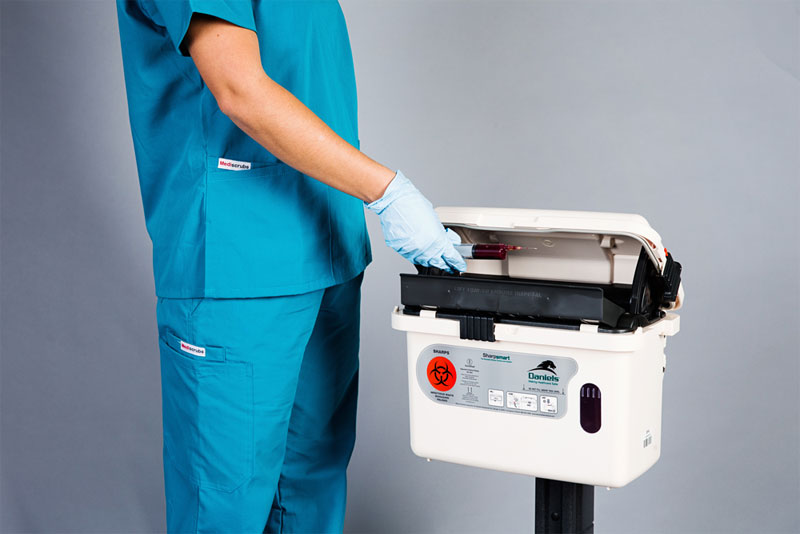
Combining all medical waste products
It would be best to have well-labeled, color-coded waste disposal containers in the vicinity of your premises. You need to educate all casual laborers and healthcare professionals on the use of each box. It’s one way to ensure that each waste ends up in their designated bin and not just any other.
At times these bins might be full, and the waste disposal company might delay in emptying them. You must never combine these medical wastes into one container. It’s a grave mistake that risks exposure to toxic pathogens. It’s best to have a back-up plan at all times or work with agencies that offer timely services.
Lack of proper waste packaging
All infectious waste has to get stored in containers that meet the right standards. Improper packaging is risky to all people who are within the healthcare center. Boxes have to be firm at all times. Once it’s full, you need to approve them for pick up.
You must ensure that you have reusable containers that are tamper-proof, puncture-resistant as well as spill-proof. It’ll ensure there isn’t any possibility for spillage risks when the item is awaiting transportation or while it’s getting transported.
Not documenting waste storage & disposal
It’s essential to exercise due diligence in tracking all waste storage and disposal documents. It will enable you to the transportation date, the registered waste hauler’s name as well as waste quantity.
Failure to do so might result in getting a citation. Improper documentation isn’t going to appear well when an audit gets done. All hazardous waste disposal procedures need to be well recorded, and each item to be accounted for always. It will ensure that you have adequate logistical data that might come in handy soon when one intends to make changes or improve the waste management procedures.
You need to comply with the governing laws at all times. It’s also a chance to update your hospital logistics about waste products. It’s a chance to weigh your options as you seek a greener approach to producing fewer waste products.
Improper transportation
It would help if you worked with an agency that has a permit or a license to haul waste products. Transporting waste products without a license might attract a hefty fine. During these processes, one may use shady people who hardly use proper containers. It’s a considerable risk to your company at large, and you need to be quite careful with this procedure.
Avoiding to train employees
There are medical institutions that lack enough resources to train their staff of the waste disposal effects, among other details. Thus, people continue lending a deaf ear and a blind site to waste handling and disposal. It’s a significant risk that might put many lives on the line.
However, you can mitigate this situation by outsourcing for a medical waste handling agency. You will benefit from their services immensely and at an affordable price. Thus, you have health-conscious individuals who know what must be done with each type of medical waste.
Assumption
One of the gravest mistakes is assuming waste storage, packaging, and transportation. You need to be meticulous in each step of handling waste products. Always have proper labeling at all times and ensure each symbol is visible from afar.
You need to ensure that the waste packages don’t land in authorized hands. As it can be quite catastrophic. Having profound knowledge will enable you to make informed choices as you go about educating others about the need for proper waste disposal.
Compliance is of utmost importance, and you mustn’t ignore it. Always take extra time and stringent measures when it comes to hazardous waste disposal. You ought to avoid the mistakes stated above to avoid any future mishap that can have grave consequences to healthcare practitioners, patients, staff members and the environment at large.
Comments
comments